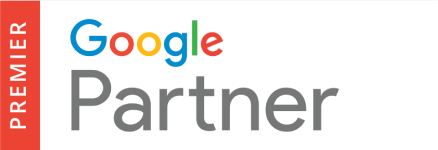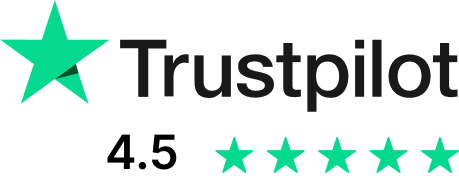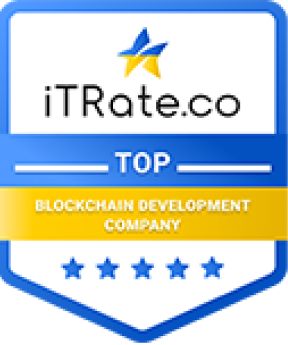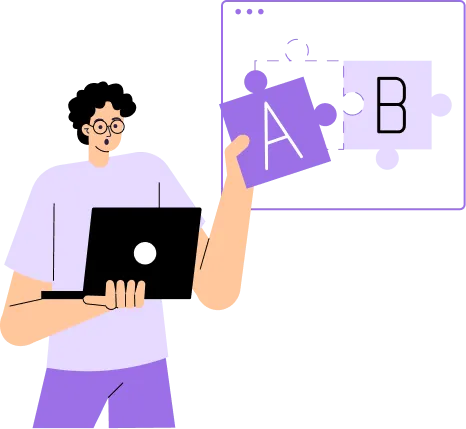
Special Needs Software
This specialized software aims to bridge gaps, providing scaled solutions to enhance accessibility, communication and overall quality of life for those with special needs. Special needs software encompasses a range of apps designed to address the specific challenges faced by people with disabilities.
Business Benefits of Special Needs Software
Diverse workforce And Inclusivity
This software plays a vital role in creating an inclusive work environment. By providing tools that cater to diverse needs, businesses open the door to a more varied and capable workforce. This inclusivity promotes creativity, innovation and a culture that values the unique strengths that each employee brings to the table.
Enhanced Employee Productivity
Special needs software often includes features that improve accessibility and streamline tasks for all users. By creating an environment that accommodates different abilities, businesses empower their employees to work more efficient. Adaptive technologies like as screen readers and voice recognition tools not only support individuals with disabilities but also enhance overall productivity, benefiting the entire workforce.
Compliance with Accessibility Standards
As the awareness of accessibility and inclusivity grows, businesses face increasing pressure to comply with accessibility standards and regulations. Special needs software aids in meeting these standards, ensuring that digital platforms, communication tools and documents are accessible to individuals with disabilities, companies not only tap into a significant market but also enhance their brand reputation.
Market Expansion And Social Responsibility
Investing in special needs software demonstrates a commitment to social responsibility. Consumers are increasingly the needs of individuals with disabilities, companies not only tap into a significant market but also enhance their brand reputation. Businesses that champion social causes are more likely to attract customers who appreciate and support their commitment to diversity.
Innovative Customer Experiences
It extends beyond internal operations to customer-facing applications. Companies that prioritize inclusive design in their software offerings to create a more welcoming experience for customers with diverse needs. This commitment to accessibility can lead to increased customer loyalty, positive word-of-mouth and a broader customer base that values companies that prioritize inclusivity .
Adaptability To a Changing Work Landscape
The nature of work is evolving, with remote and flexible work becoming more prevalent. Special needs software equips businesses to adapt to these cater to different work environments, companies can embrace the evolving landscapes while ensuring that all employees, regardless of their location or abilities, can contribute effectively.
Features We Offer in Our Special Needs Software

Intuitive User Interface
Special needs software development places a strong emphasis on customizable user interfaces. We understand that every user is unique and their interaction with technology should reflect that. Our software allows for personalized settings, accommodating individual preferences and ensuring a comfortable and scaled experience for users with diverse abilities.

Interactive Multimedia Integration
One of the cornerstones of our development is the incorporation of adaptive learning tools. These tools cater to the specific learning needs of individuals with disabilities, offering features such as interactive content, varying difficulty levels and real-time feedback. By adapting to the users pace and style, our software creates an inclusive educational environment that nurtures individual strengths.

Collaborative Authoring Capabilities
Communication lies at the heart of our Special Needs Software Development. We offer multi-modal communication support through Augmentative and Alternative Communication (AAC) features. Users with speech or language impairments can express themselves effectively using visual symbols, voice output or other communication aids integrated into our software, promoting engagement and self-expression.

Adaptive And Responsive Design
Sensory integration is a crucial aspect of our software development. We recognize the diversity of sensory needs among users and have integrated solutions that cater to sensory processing challenges. Whether its features to reduce visual clutter, provide auditory support or offer tactile feedback, our software ensures a balanced and comfortable sensory experience for individuals with varying sensitivities.

Real-Time Feedback Mechanism
Implement a real-time feedback mechanism to provide immediate guidance and supports to users. Our software offers feedback in various formats such as visual cues,auditory prompts or haptic feedback to assist users in navigating through tasks and activities smoothly.

Personalized Learning Plans
Develop perosonalized learning plans tailored to each user's unique needs and preference.Our software analyzes user performance and adapts learning materials and activities accordingly,ensuring optimal enagagement and progress in the learning process.

Assistive Technology Integration
Integrate assistive technologies seamlessly into your software to provide additional support and accesibility featres.Our software works compatively with a wide range of assitive devices,ensuring inclusivity and ease of use for all users.

Multi-Language Support
Offer multi-language support to cater to users from diverse linguitic backgrounds.Our software provides interface localization and content translation features,allowing users to access and interact with software in their prefered language.
Advanced Technologies We Use in Modern Special Needs Software





Why Choose Tanθ for Special Needs Software?

Tailored Solutions For Diverse Needs
Our software offerings span the spectrum from accessibility software ensuring digital inclusivity to specialized tools like Augmentative and Alternative communication software for effective communication. Every solution is crafted with a deep understanding od the challenges faced by individuals with special needs, ensuring that our technology serves as a catalyst for their success in various aspects of life particularly in education.

Comprehensive Assistive Technology Services
We go beyond mere accessibility, offering a range of tools and devices that empower individuals to overcome barriers in their daily lives. Whether its mobility aids, sensory integration software or adaptive technologies, our services are designed to promote independence, enhance communication and provide equal opportunities for individuals with disabilities to thrive.

Focus on special Education Software
At Tanθ, we understand the importance of scaled educational experiences for students with disabilities. Our special education software is crafted educators in creating inclusive learning environments. From interactive programs to customizable learning materials, our software is designed to meet the unique needs of each student. We believe in the transformative power of education and strive to make it accessible to all, breaking down barriers and promoting a love for learning.

User-centric Approach And Ongoing Support
We try to provide user-centric approach which ensures that our clients recieve ongoing support anf guidance. From user training to addressing evolving needs, we stand out by our clients every step of the way. This commitment to excellence is reflected in our dedication to creating not just software but a holistic support system that enables individuals with special need to lead fulfilling and empowered lives.
Our Special Needs Software Development Process

Understanding Unique Needs
Our journey begins with a deep understanding the unique needs and challenges faced by individuals with disabilities. Through extensive research and consultations, we engage with educators, specialists and end-users to find out specific requirements. This foundational step is crucial in shaping the direction of our software development, ensuring that it resonates with the real-life experiences of those it aims to support.

Collaborative Design And Prototyping
Designing software that meets to special needs involves a collaborative process. Our team works closely with educators, therapists and individuals with disabilities to create a user-centric design. Prototypes are developed and refined through iterative feedback sessions to ensure that the software is intuitive, accessible and aligns seamlessly with unique requirements of users.

Inclusive Development practices
Our developers are trained to implement features like customizable interfaces, multiple input options and compatibility with assistive technologies. The goal is to create software that not only meets the needs of individuals with disabilities but also evolves with advancements in technology, ensuring its relevaneover time.

User testing And Continuous Improvement
User testing is a cornerstone of our development process. We engage individuals with disabilities, educators and other stakeholders in extensive phase to gather feedback on usability, effectiveness and overall user experience. This iterative feedback loop allows us to make continuous improvements, refining the software based on real-world usage and ensuring that it remains a valuable and relevant tool in the ever-evolving landscape of special needs education.
A Snapshot of Our Success (Stats)

Total Experience
0Years

Investment Raised for Startups
0Million USD

Projects Completed
0

Tech Experts on Board
0

Global Presence
0Countries

Client Retention
0
Proof of Concept
The Proof of concept serves as a crucial milestone in the development lifecycle. It represents the practical validation of an idea or concept before full-scale implementation, allowing developers, educators and stakeholders to assess the feasibility and potential impact of the software.
Identifying Needs And Challenges
At the heart of the proof of concept process is a thorough understanding of the needs and challenges faced by individuals with special needs. Developers engage in extensive research and consultations with educators, therapists and end-users to find out specific requirements. This foundation step ensures that the softwares proof of concept addresses real-world challenges effectively.
Prototyping For User-Centric Design
The proof of concept involves creating prototypes that exemplify the core functionalities of the special needs software. These prototypes are designed with a user-centric approach, involving feedback from educators, therapists and individuals with disabilities. This iterative design process ensures that the software is intuitive, accessible and resonates with the diverse user base it aims to support.
Testing Inclusivity And Accessibility
During the proof of concept phase, developers rigorously test the software's features to ensure it accommodates various disabilities. This includes testing compatibility with assistive technologies, evaluating ease of navigation and confirming that the software is adaptable to different learning and communication styles.
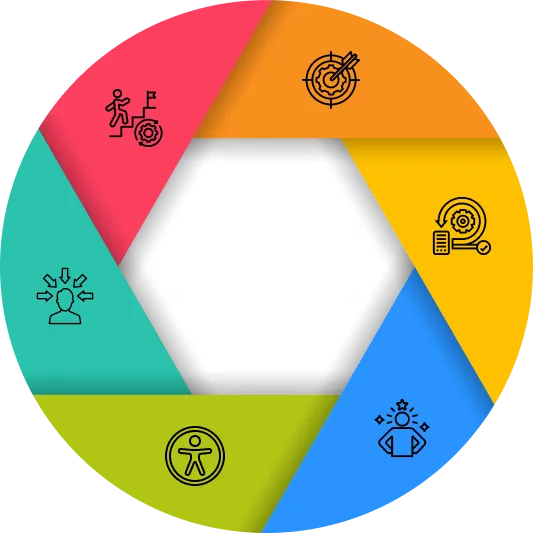
Gauging effectiveness And impact
The proof of concept serves as a practical gauge of the software's potential effectiveness and impact. Through user testing and feedback loops, developers and educators assess how well the software addresses the identified needs. This assessment considers the software's potential to enhance learning, communication and overall quality of life for individuals with special needs.
Iterative Refinement For Continuous Improvement
A fundamental aspect of the proof of concept process is its iterative nature. Based on user feedback and testing results, developers refine and improve the software's design and functionality. This continuous refinement ensures that the final product aligns closely with the evolving needs of its users and remains a relevant and valuable tool in the special needs education landscape.
Building Confidence For full-Scale Development
Stakeholders, including developers, educators and potential users, gain insights into the software's potential impact and functionality. This confidence becomes a solid foundation for moving forward with full-scale development, knowing that the software has undergone rigorous testing and validation.
We Start Here
This specialized software is designed to address the the diverse needs of people with disabilities, providing solutions that foster inclusivity, accessibility and personal development. In this blog post, we would delve into the essential steps to embark on the journey of creating special needs software, ensuring a thoughtful and impactful approach.

Protect Your Idea
Intellectual property protection is essential to prevent unauthorized use or replication of your special needs software concept. Consider consulting with legal professionals to explore options like patents, trademarks or copyrights to secure your intellectual property rights and establish a foundation for the successful development of your software.

Consultation And Assessment
Initiate a comprehensive consultation and assessment phase where you engage with stakeholders, including individuals with special needs, caregivers, educators and relevant professionals. By gaining insights into their specific requirements, preferences and challenges, you lay the groundwork for developing a solution that truly addresses the needs of the intended users.

Project Scoping
Once you have a clear understanding of the users needs, proceed to define the scope of your special needs software project. Outline the features, functionalities and technical specifications that align with the identified requirements. Clearly defining the scope helps in managing expectations, setting realistic project timelines and ensuring that the development team has a clear roadmap for implementation.

Estimation And Proposal
Once you have a comprehensive estimation, craft a detailed project proposal that outlines the project scope, objectives, timelines and budget requirements. A well-structured proposal serves as a roadmap for the development process and facilitates effective communication between stakeholders, ensuring everyone is aligned on the projects goals and expectations.
Frequently Asked Questions
Latest Blogs
Uncover fresh insights and expert strategies in our newest blog! Dive into the world of user engagement and learn how to create meaningful interactions that keep visitors coming back.Ready to transform clicks into connections?Explore our blog now!

- Games

- India

- United States

316 8th Avenue, New York, NY 10012, United States

[email protected]

- Canada

40 A, 100 Main St E, Hamilton, Ontario L8N 3W7

[email protected]

- UAE

406, Building 185 Street 10,Jebel Ali Village,Discovery Gardens

[email protected]

- United Kingdom

28 S. Green Lake Court Fleming Island, FL 32003

[email protected]











